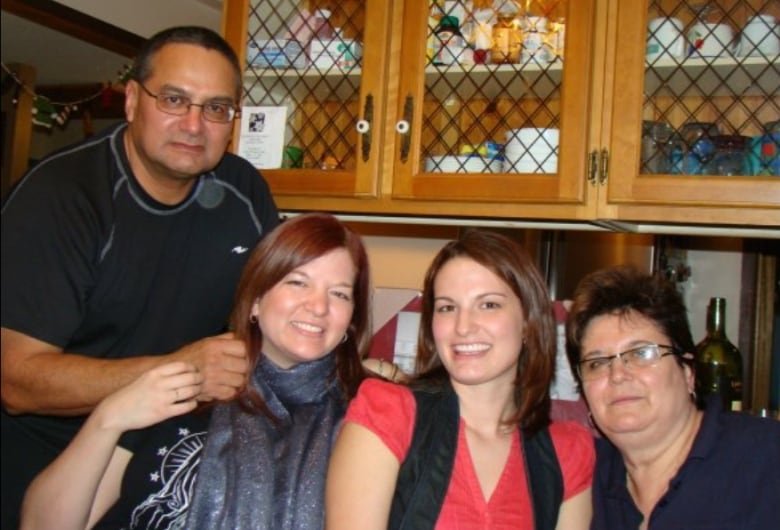What is being billed as the first Indigenous-led, on-territory hospice in Canada will bring culturally appropriate end-of-life care closer to home for those in Six Nations of the Grand River, near Hamilton.
The five-bed hospice will incorporate Haudenosaunee teachings to provide physical, emotional and spiritual support.
The Ontario government will invest $1.25 million in the facility, along with a $5.5 million investment from the Six Nations of the Grand River Elected Council, according to a news release. There is no date when construction is to begin or when the hospice will officially open.
Katie Maracle, who is Mohawk from Six Nations, lost her mother in June to complications from breast cancer.
Maracle said when she heard the announcement from the province and Six Nations council earlier this week, she was pleasantly surprised.
“It’s been in the works for years; like they’ve been fundraising forever and my mom was on the committee right until even when she was sick,” she told CBC Indigenous.
She said there are still pillows and bags in the basement leftover from her mother’s fundraising efforts for a hospice in the community.
Maracle’s mother was diagnosed with stage 2 breast cancer in February. She said once her mother started her treatment, “it was like her body just betrayed her.”
“We still don’t totally understand what happened,” she said.
Her mother’s cancer treatments landed her in the hospital each time “on death’s door” and they were forced to stop. Her mother had a double mastectomy to treat the aggressive cancer in May.
After that, Maracle and her sister cared for their mother at home, with nurses who came in from Home and Community Care in Six Nations, until she collapsed one night and was taken back to the Juravinski Cancer Centre in Hamilton.

Maracle said she and her family spent most of their time there in the weeks following until her mother’s death.
She said the medical staff at the Juravinski Cancer Centre were culturally sensitive and allowed their extended family to visit, drum and sing to her mother as she was dying.
But she said she and her sister still had to advocate for their mother’s end-of-life care, regarding blood transfusions and other procedures her mother had always told them she didn’t want.
“We had to set up a meeting with a doctor and a social worker and our family and we’re like, listen … she don’t wanna live like this,” she said.
“Why do we have to go through this process? Why don’t you just listen to us? Of course it was a horrible, hard decision, but we just knew that she wouldn’t want to live like that. Just laying there bleeding … you’re just prolonging this.”
She said if they had been at a hospice in the community, they wouldn’t have had to spend their time trying to get the doctors to respect her mother’s wishes — and she and her family wouldn’t have had to sleep on the floor of their mother’s hospital room, or the waiting room, to be with her.
‘One of the most sacred times’
One of the reasons her mother was such an advocate for a hospice in the community is because her husband died peacefully at home, Maracle said.
“We were able to have my dad at home for end of life and it was so beautiful,” she said.
“You know, it’s him leaving the world, but it was such an amazing experience.”
When her father died, he was surrounded by family and friends who ensured he was comfortable, she said.
Maracle said five beds isn’t a lot but it’s a start in providing a service that’s needed in her community.

According to the news release, once the hospice opens, the Ontario government will provide annual operational funding for nursing, personal support, and other end-of-life care services for patients.
“At one of the most sacred times of a person’s life, we will have our own hospice to be able to support our members, their families and loved ones, as they complete their journey on Earth,” said Debra Jonathan, director of well-being for Six Nations.
“It will be done respecting our ways and their wishes, to ensure their next journey is a peaceful one.”
